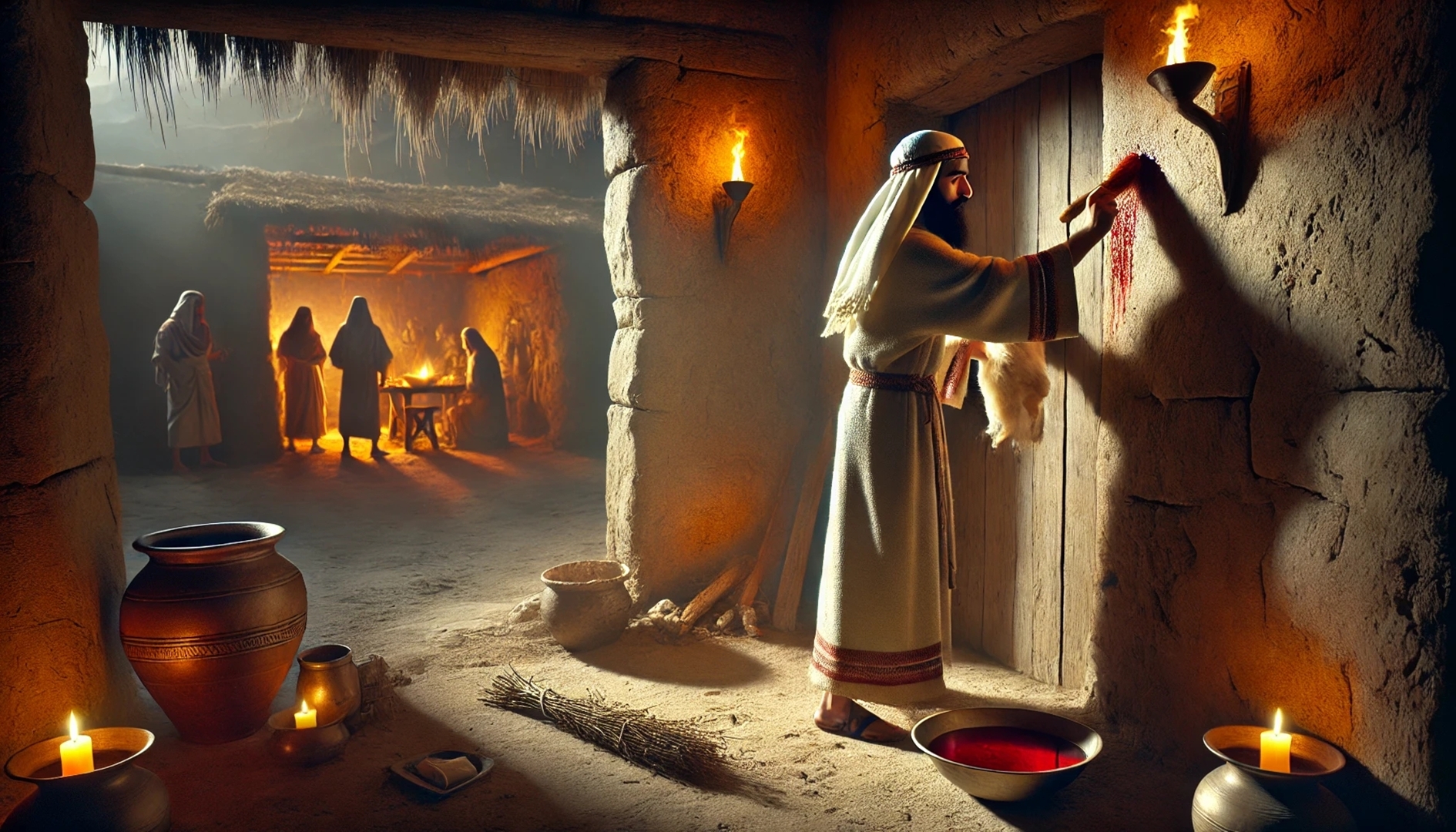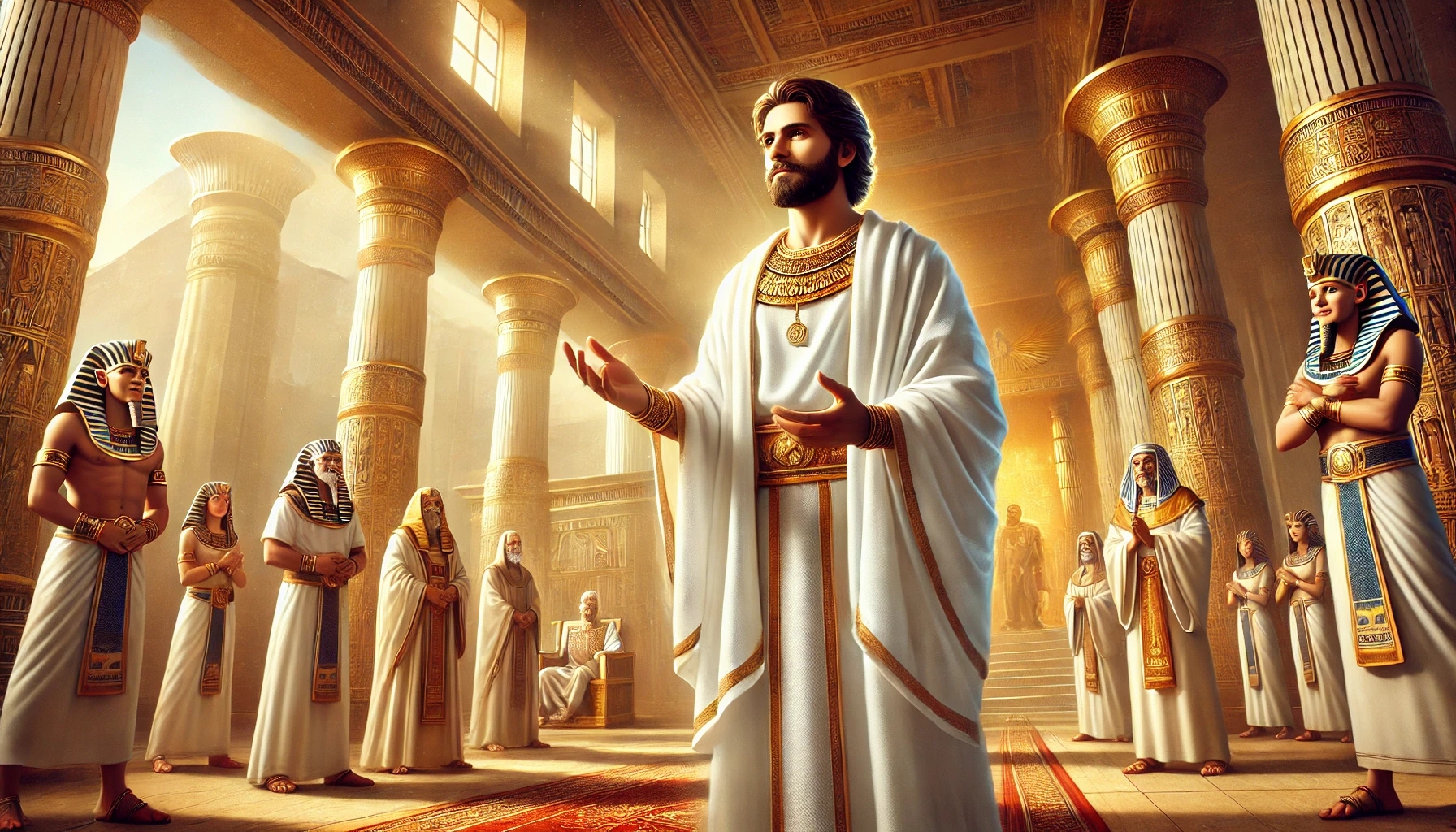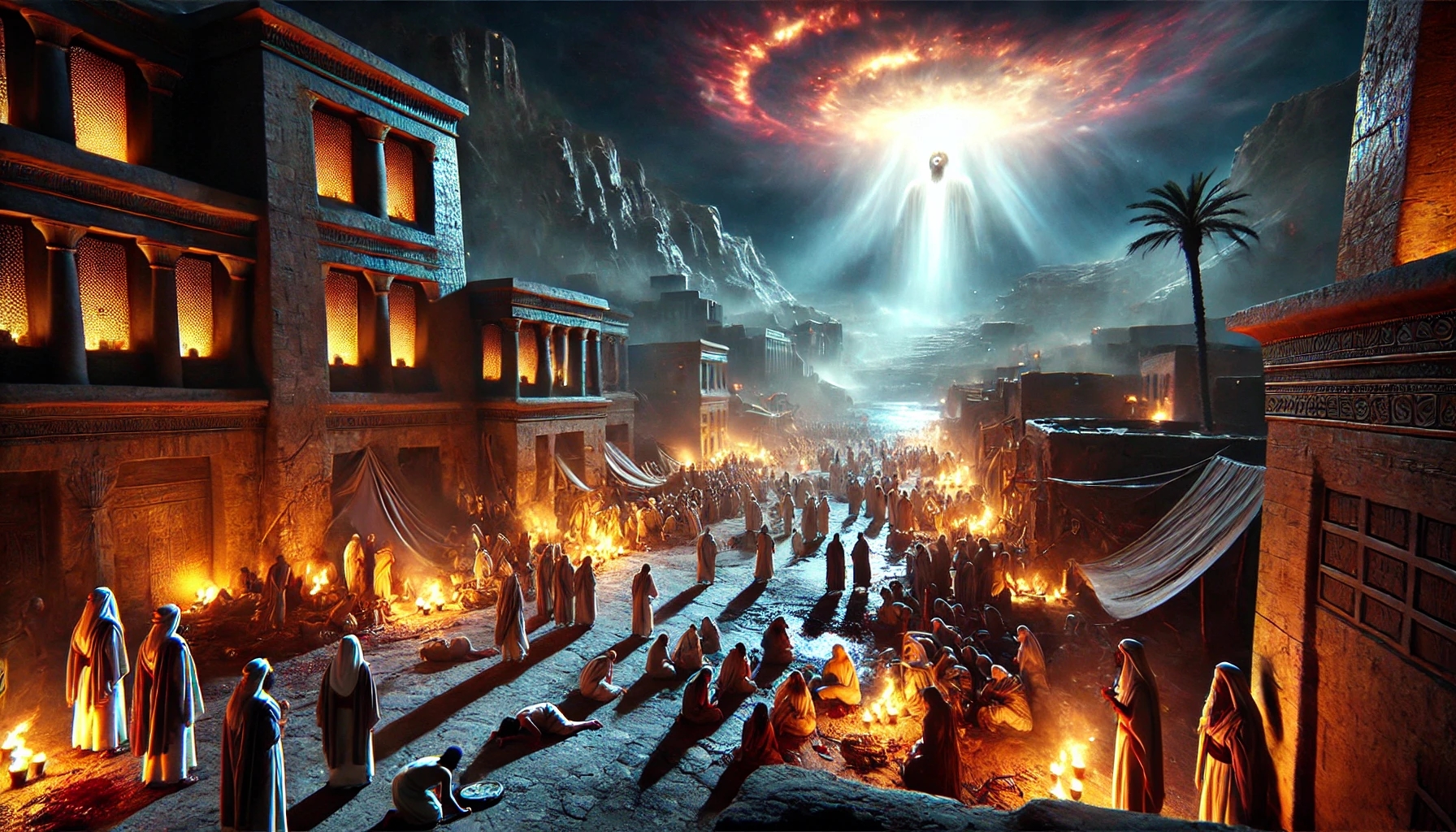 August 2, 2025
August 2, 2025
 Joseph – Faith That Endures
Joseph – Faith That Endures
Devotions from the life of a dreamer with character
 8.God Is with You in Trouble
8.God Is with You in Trouble
When life turns dark – and yet you are not alone
──────────────── ────────────────
────────────────
 Introduction
Introduction
There are times when life feels like a prison – not necessarily made of stone and iron, but of circumstances, worries, or fears. Joseph experienced this literally. Despite his faithfulness and courage, he was falsely accused, convicted, and imprisoned. Yet in the midst of this chapter in his life stands a remarkable statement:
“But the Lord was with Joseph.”
This reminds us that God’s nearness is not dependent on outward circumstances. He does not abandon us in the depths – often, He proves His faithfulness precisely there. This devotional is meant to remind you that hardship does not mean God is absent. On the contrary – God is with you in your trouble.
──────────────── ────────────────
────────────────
 Devotional
Devotional
Genesis 39:21
“But the Lord was with Joseph and showed him steadfast love.”
Joseph was unjustly imprisoned. He had done the right thing – and still fell into darkness. Many in his position would have turned away from God, lost hope, or become bitter. But Joseph reacted differently: he held on to his faith. And more than that – God was with him.
This verse shows us: circumstances do not determine God’s presence. Joseph was outwardly in chains but inwardly carried. While others might have forgotten their calling, Joseph remained faithful – because he knew: God had not forgotten him.
In times of trouble, the foundation of our faith is revealed. Joseph didn’t live in an ideal – he lived in the real. And it was there that his character was revealed. He worked faithfully, served others, and held on to God – not because it was easy, but because he was convinced that God saw him.
God’s presence in the prison didn’t mean Joseph was immediately set free. It meant that he was not alone in the darkness. That reality gives us hope today: even if our problems don’t disappear right away, God is still present. He may not heal everything instantly, but He carries us through it all.
Joseph could have asked, “Why me? Why now?” But the Bible shows us that he didn’t turn these questions into bitterness, but into trust. His story reminds us: the place of trouble can become the place of calling – if we believe that God is with us there.
Sometimes we experience God’s presence not as a flash of light, but as quiet faithfulness. As the strength to carry on. As peace in the storm. That’s how it was for Joseph – and it can be that way for you too.
──────────────── ────────────────
────────────────
 What We Can Learn from Joseph
What We Can Learn from Joseph
-
God’s presence is not tied to outward success. He is with us even in failure, loss, or illness.
-
Faithfulness in small things opens doors to greater ones. Joseph stayed faithful in prison – and was later lifted up.
-
Not every hardship is punishment. Sometimes it’s training for what God still plans to do.
-
God works in hidden ways. Even when we don’t see Him, He is already at work.
 Reflection – What Does This Mean for You?
Reflection – What Does This Mean for You?
-
When did I last experience God’s nearness in the midst of pain?
-
What area of my life feels “imprisoned” – and how might I encounter God right there?
-
What would change if I truly believed that God is with me – right now?
──────────────── ────────────────
────────────────
 And Most Importantly
And Most Importantly
Joseph was not alone, even though everything said otherwise. God was not just his rescuer, but his companion. And this God hasn’t changed. His presence is just as real today.
Maybe you feel like Joseph in prison: forgotten, unfairly treated, or emotionally drained. This devotional reminds you: You are not alone. God sees you. He is with you – right now.
──────────────── ────────────────
────────────────
 Story – “In Room 314”
Story – “In Room 314”
A story about isolation, hope – and a God who walks hospital hallways.
Chapter 1 – The Day Everything Went Quiet
Laura was 32 when she got the diagnosis.
A rare autoimmune disease, slowly progressive, incurable.
She was a nurse by profession – and suddenly felt like a helpless child within the very system she used to organize.
Her life had once been structured: early shifts, smiles, patients, home, church.
Now there was only: stillness.
Infusions. Medications. Isolation. Questions.
Hospital room 314 became her home for weeks.
Visitors came – at first. Then fewer.
Her voice on the phone always sounded “positive.” But deep inside, a quiet darkness had settled.
“Where are you, God?” – She asked this silently, more often than aloud.
✦ ─────────────── ✦ ─────────────── ✦
Chapter 2 – The Nurse with the Quiet Song
One night, Laura couldn’t sleep. The pain was intense, her thoughts louder still.
She stared at the ceiling, silently crying.
Then she heard a quiet melody in the hallway.
Not from a radio. Not from a device.
A voice.
A night nurse, softly humming. No lyrics – just a simple, calm tune.
Laura pressed the call button.
The nurse entered – dark-skinned, gentle, with a warm smile.
“I didn’t mean to disturb…” Laura said.
“You didn’t disturb,” the nurse replied.
Laura paused, then whispered: “Do you sing often at night?”
The nurse nodded. “Always. I believe God walks hospital hallways too.”
Laura fought back tears.
For the first time in weeks, she didn’t just feel empathy – but nearness. Something divine in the everyday.
✦ ─────────────── ✦ ─────────────── ✦
Chapter 3 – The Bible Verse on the Wall
A few days later, Laura noticed a small card on the bulletin board.
She hadn’t seen it before. Someone must have placed it there quietly.
It read:
“The Lord is close to the brokenhearted.” – Psalm 34:18
Not “was” close.
Not “will be.”
Is. Now.
The card was small – but it became an anchor.
Laura began to count her days not just by pain, but by small signs: a smile, a call, a ray of sun through the window.
She even started writing a devotional blog – from her bed.
Title: “God in Room 314.”
✦ ─────────────── ✦ ─────────────── ✦
Chapter 4 – The Discharge
After two months, she was allowed to go home.
Not healed. Not strong – but strengthened.
The illness remained – but so did her faith.
She later said during a testimony night:
“I didn’t see God – but I heard Him. In songs, in silence, in a Bible verse on the wall.
I was never alone. I thought I was abandoned – but God was with me. Always.”
──────────────── ────────────────
────────────────
 Reflections on the Story
Reflections on the Story
-
Trouble isolates – but it doesn’t separate us from God.
-
God’s presence is often invisible – but felt in small signs.
-
It doesn’t take much to bring comfort – a song, a word, a card can heal.
-
Even in pain, faith can grow – not through explanation, but through encounter.
──────────────── ────────────────
────────────────
 Application
Application
What can I do when I feel trapped in the “cell” of my own trouble?
-
Look for small signs of God’s nearness. He often speaks softly.
-
Be honest in prayer. Even Joseph and David lamented – and God heard.
-
Share your story. Someone needs the comfort you’ve gained through suffering.
-
Pray for quiet strength. Not always for escape – sometimes for endurance.
──────────────── ────────────────
────────────────
 Prayer
Prayer
Lord,
I thank You that You are a God who stays.
Even when I don’t see You – You are there.
Even when I don’t feel You – You carry me.
Give me courage today to trust You – even in the fog.
Help me believe that my story continues – even when I see only darkness.
And use my weakness to show Your strength.
Amen.
──────────────── ────────────────
────────────────
 Key Thought of the Day
Key Thought of the Day
God’s nearness is not a feeling – it’s a fact.
He is with you. In your trouble.
Especially there.
──────────────── ────────────────
────────────────
 Blessing to Close
Blessing to Close
May the Lord bless you with light in dark times.
May He strengthen your heart with hope when your strength fades.
May He let you see that you are never alone –
and that your pain is not the end of your story.
Amen.
──────────────── ────────────────
────────────────
LumenCorde | Daily light for a living soul.

 Lesson 5: Passover
Lesson 5: Passover 5.6 Summary
5.6 Summary Passover: Remembrance of Redemption and Judgment
Passover: Remembrance of Redemption and Judgment ……………………………..
…………………………….. Introduction
Introduction Bible Study
Bible Study 5.1 Another Plague – The Final Warning
5.1 Another Plague – The Final Warning Application for Daily Life
Application for Daily Life Conclusion
Conclusion Thought of the Day
Thought of the Day Illustration – – The Night of the Lanterns
Illustration – – The Night of the Lanterns 01 August 2025
01 August 2025 BELIEVE HIS PROPHETS
BELIEVE HIS PROPHETS Daily Bible Reading
Daily Bible Reading Leviticus 17 – Life Is in the Blood
Leviticus 17 – Life Is in the Blood Holiness, purity, and the only place of atonement
Holiness, purity, and the only place of atonement Bible Text – Leviticus 17 (KJV)
Bible Text – Leviticus 17 (KJV) Introduction
Introduction Commentary
Commentary 1. The Place of Sacrifice – Only Before the Lord (Verses 1–9)
1. The Place of Sacrifice – Only Before the Lord (Verses 1–9) Spiritual Principle:
Spiritual Principle: Life is in the blood.
Life is in the blood. Gospel Insight:
Gospel Insight: Washing, cleansing, waiting until evening.
Washing, cleansing, waiting until evening. Practical Point:
Practical Point: Summary
Summary Message for Us Today
Message for Us Today There is only one place of atonement – Jesus Christ.
There is only one place of atonement – Jesus Christ. Reflection Questions
Reflection Questions
 Ellen White | Patriarchs and Prophets – Chapter 20
Ellen White | Patriarchs and Prophets – Chapter 20
 Joseph in Egypt
Joseph in Egypt Read online
Read online  1. Brokenness: Loneliness and Loss (The Beginning of the Journey)
1. Brokenness: Loneliness and Loss (The Beginning of the Journey) Reflection Question
Reflection Question August 1, 2025
August 1, 2025 Joseph – Faith That Endures
Joseph – Faith That Endures 7.Faith Instead of Grudge
7.Faith Instead of Grudge Introduction
Introduction Devotional
Devotional What We Can Learn from Joseph
What We Can Learn from Joseph Reflection – What Does This Mean for You?
Reflection – What Does This Mean for You? Story – “When My Heart Learned to Forgive”
Story – “When My Heart Learned to Forgive” Application
Application Practical Steps for Today
Practical Steps for Today Prayer
Prayer Key Thought of the Day
Key Thought of the Day Blessing to Close
Blessing to Close
 Lesson 5: Passover
Lesson 5: Passover 5.5 The Divine Judgment
5.5 The Divine Judgment Divine Judgment – When Justice Is Revealed
Divine Judgment – When Justice Is Revealed Introduction
Introduction Bible Study: Exodus 12:29–30 + Hebrews 11:28
Bible Study: Exodus 12:29–30 + Hebrews 11:28 1. Historical and Biblical Context
1. Historical and Biblical Context Answers to the Questions
Answers to the Questions Question 1: Why the Firstborn?
Question 1: Why the Firstborn? Application for Daily Life
Application for Daily Life Conclusion
Conclusion Thought of the Day
Thought of the Day Illustration – “When the Light Fell Silent”
Illustration – “When the Light Fell Silent”